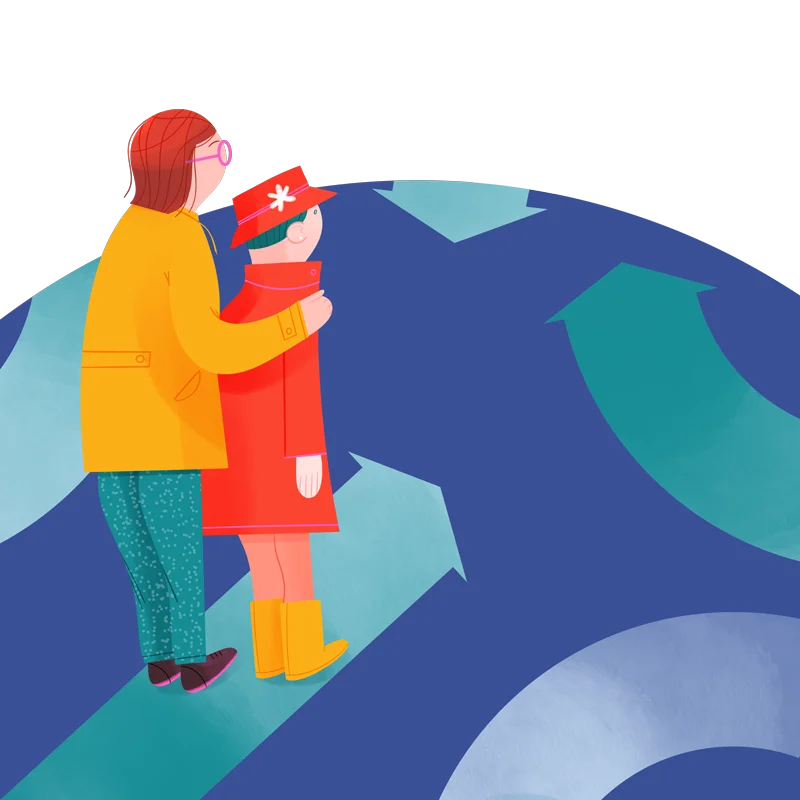A unique journey
The role of being a caregiver is a journey in constant flux depending on the intensity of the caregiver’s commitment and the relationship with the person receiving care. Just as every person is different, every journey is unique and can vary based on several factors, such as age, socioeconomic conditions, health status, past relationship with the person receiving care, etc.
Changing needs
Although the journeys differ from one person to the next, the needs expressed by the caregiver and the person receiving care still follow a similar trajectory. For example, the primary needs of caregivers change as a senior’s cognitive disease progresses.
Common caregiver’s needs during initial stage of cognitive disease
- Deal with the shock of the diagnosis
- Understand the illness of the person receiving care
- Identify adaptation strategies
- Plan the legal aspects of the possible incapacity of the person receiving care
- Help the person receiving care plan end-of-life wishes
- Start the processes to adapt the home
- As needed, share your emotions with people going through similar situations
- Seek family or individual support
Common caregiver’s needs during intermediate stage of the cognitive disease
- Take periods of respite to maintain your balance and have time to yourself
- Learn to use the various pieces of equipment needed to support the person receiving care
- Manage a range of tax/legal/financial matters
- Understand your role, and the roles of family and the various care teams
- Constantly find strategies to manage the behavioural and psychological symptoms of dementia
- Manage the medication of the person receiving care
- Organize your time and your future
- Talk about your experience and share it with peers and psychosocial workers, accept outside help
- Manage your stress and set limits
Common caregiver’s needs during advanced stage of the cognitive disease
- Benefit from support and referrals regarding long-term care
- Manage grief, loss, the drop in “performance adrenalin” and family reactions
- Participate in managing the end of life of the person receiving care and all the tasks that this involves
It should be noted that the list of needs above is not exhaustive. Moreover, some of these needs may well arise at a different stage of the illness’s development than indicated above. The sooner the caregiver will be able to identify his actual needs and what is to be expected in the future, the sooner he will be able to find helpful resources.
Wherever you are on your journey, don’t hesitate to contact the Caregiver Support at 1 855 852-7784. Our professional counsellors are on hand to listen, provide information and direct you to resources and services in your area.











